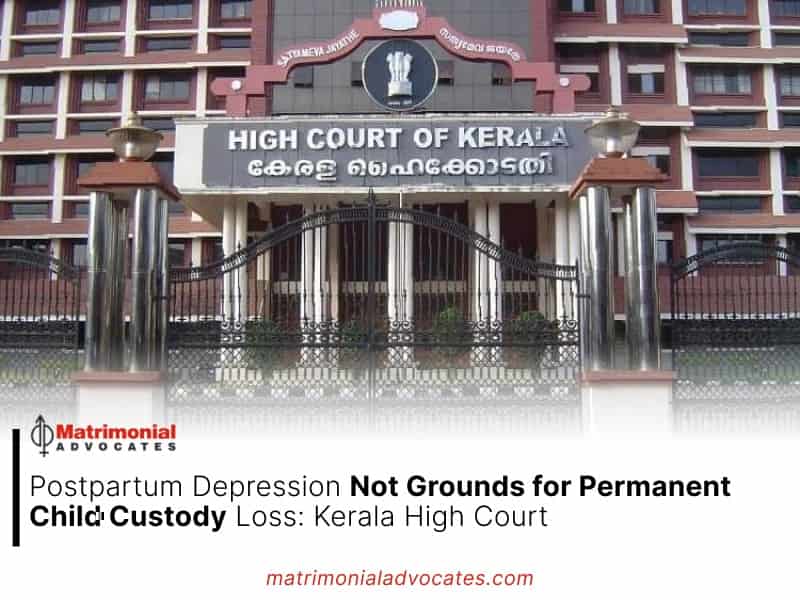
It is now well settled through scientific studies that postpartum depression is rather common in some women and that this is not a situation that will continue forever,” the Court pointed out.
The Kerala High Court overturned an order granting custody of an infant to the father, ruling that postpartum depression allegedly experienced by the mother cannot justify permanently removing the child from her custody.
The High Court noted that the family court’s decision relied on outdated medical records from February 2023, which indicated the mother had experienced postpartum depression.
The Division Bench, comprising Justices Devan Ramachandran and MB Snehalatha, stressed the need for further inquiry to determine whether the mother continued to face such a condition.
“To allege that the petitioner-wife is still suffering from postpartum depression and is even unwilling to nurse the child, certainly requires to be established through cogent and reliable methods; but, in our firm view, could not have been so declared by the learned Family Court, as has been done in Ext.P8 order, merely based on the afore records,” the Court said.
The Court clarified that postpartum depression is a common and temporary condition.
“It must be borne in mind that, it is now well settled through scientific studies and assessments, that postpartum depression is rather common in some women and that this is not a situation that will continue forever, but most of the time being temporary, for a short duration,” the November 8 order said.
The case involved the custody of a one-year-old infant. The child’s father had filed a petition in the family court seeking permanent custody, alleging that the mother’s psychiatric conditions, including postpartum depression, rendered her unfit to care for the child.
Based on medical records, the family court initially granted interim custody to the father and later awarded him permanent custody.
The mother appealed the family court’s orders to the High Court, contending that the assumption of her having psychiatric disorders was unfounded.
The mother argued that her child was still nursing and unwilling to stay with the father, asserting that separating the child from her care would result in significant emotional distress. She also emphasized that the postpartum depression cited did not represent her current mental state.
The father, however, claimed that the mother’s mental condition rendered her incapable of adequately caring for the child.
During the High Court proceedings, the mother offered to undergo a medical evaluation, asserting that she did not have any psychiatric disorder.
The Court subsequently instructed a medical board at the Government Medical College, Ernakulam, to assess her mental health. The board’s report confirmed that she showed no significant mental health issues affecting her ability to care for the child.
The High Court ultimately determined that the family court had placed undue reliance on outdated and insufficient medical evidence in deeming the mother unfit to care for her child.
“It is luculent that they are of February 2023, immediately after the petitioner gave birth to the child; and it only indicates that she was suffering from postpartum depression, thus showing some alienation to the baby at that time,” the High Court noted.
The Court then overturned the family court’s decision and directed that the matter be reconsidered after rehearing both parties.
“The evaluation of the petitioner by the Government Medical College is only for our assessment and we leave the parties to invoke every other liberty that may be available to them, when the matter is finally disposed of by the learned Family Court,” the High Court added.





